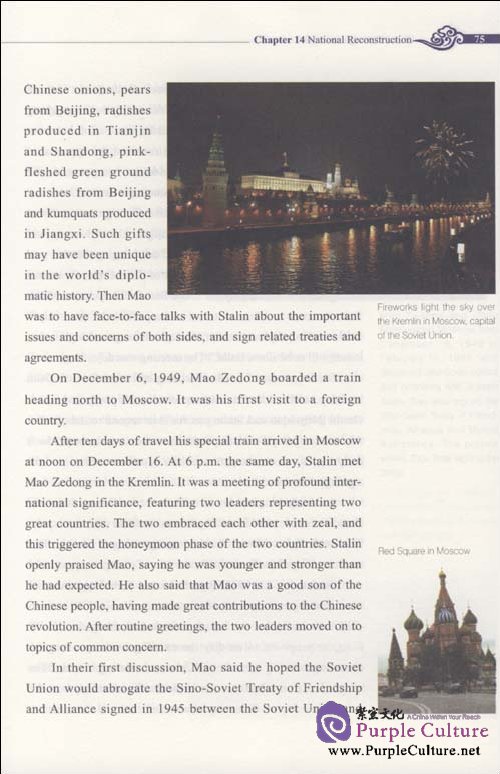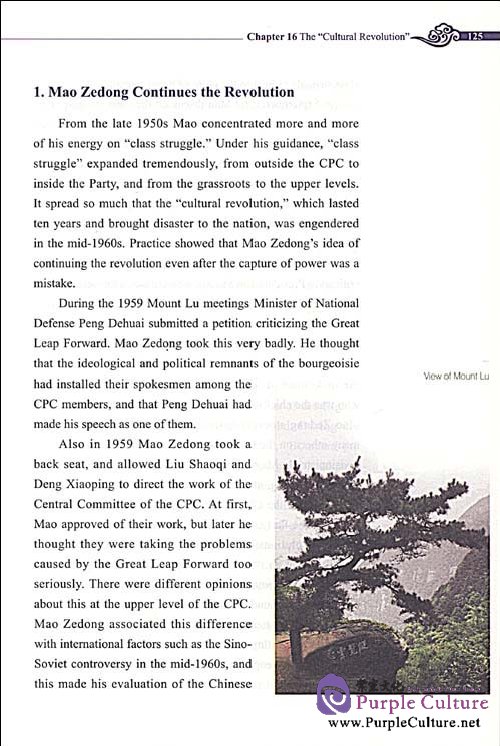Sample Pages Preview


But Roosevelt was dissatisfied with Chiang, as the latter seemed to be half-hearted about the struggle against the Japa- nese invaders. "As a matter of fact," he said, "there's only one point to our work in China——we must make China continue fighting, to distract the Japanese army. And America is sure that to support China is to protect our own security and interests, and that's necessary to the Allies' cause."
Roosevelt hoped this meeting would enhance China's standing as one of the four great powers (China, America, Russia and Britain), and provide symbolic support for Chiang. From November 21 to 22, 1943 representatives from China, America and Britain arrived in Cairo. Chiang held extensive talks with Roosevelt and Churchill from the 22nd to the 26th. Since Burma had fallen, China was facing extreme difficul- ties on the battlefield and so it was very important to reopen the China-Burma Road. Chiang Kai-shek suggested that the counter-attack in Burma required Britain to transfer its navy to Bengal, so that Burma could be taken back by both naval and land forces, and the China-Burma Road could be opened again to serve as China's supply line from the southwest. Churchill, however, was in favor of finishing the war in Europe first. The issue of a joint counter-attack against the Japanese in Burma was left in the air.
On the evening of November 23, Chiang and Roosevelt held a long secret discussion about China's resistance to Japan and Sino-American relations.
Regarding China's standing as a world power, Roosevelt thought that the country should be treated as one of the four powers with an equal voice to the other three in major world affairs. Chiang expressed his enthusiastic agreement. Roosevelt also suggested that the Republic of China take back Manchuria.
Preface
In recent years, China's reform and opening-up movement, as well as her rapid development, have drawn increasing attention from foreign coun- tries anxious for an insight into what has always been a mysterious land for them. At the same time, China needs to open up to the international commu- nity as much as possible, so as to integrate herself smoothly with the rest of the world.
However, rarely do we see books on China's evolution by local authors becoming popular with foreign readers, and there are even fewer widely-read books that cover Chinese history, culture, current situation and challenges. This is why I readily agreed when Mrs Zhang Haiou, deputy chief editor of New World Press, asked me to compile a book about Chinese history. I knew I would meet many challenges, but it would be worthwhile.
The idea for this book came from Mr Lin Liangqi, former deputy chief editor of China International Publishing Group. He has worked on media and cultural exchanges between China and the outside world, and is well experienced in this field.

